A clogged toilet in a plane, is no good. Reason for aircraft manufacturer Boeing to start working with an SKW system. This is a technique of German origin that ensures better water distribution, and therefore no more clogged aircraft toilets. Similarly, the technique is also used in horticulture. Here, for example, the system prevents clogged drippers as a result of mineral deposits, but SKW also points out the role of water to optimally apply crop protection.
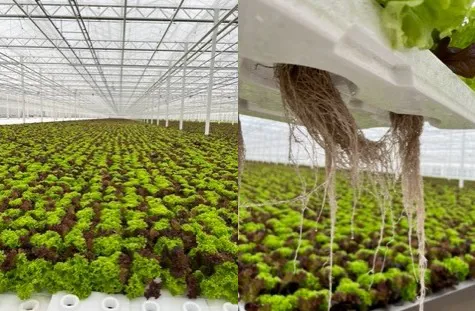
"SKW's focus has long been on industry," says Pieter van Noord, the company's representative in the Netherlands. Since 2015, there has also been a Dutch branch, set up by the Dutchman. The founder of the German company, now 81-year-old Jürgen Siekmann, saw few opportunities in horticulture, although the system was already being used there. "That's because the water in horticulture is often already too clean as they use rainwater or because of high-pressure filtration," Pieter explains. "However, when we started looking at the pipes containing feed water, with fertilisers in it, it turned out that we could play an important role in that."
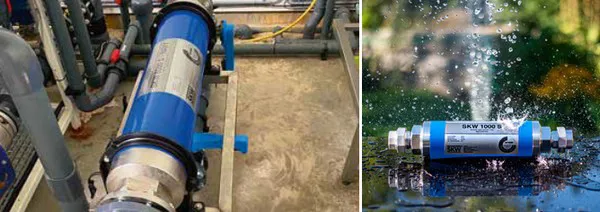
Smaller droplets
SKW can do that with a system based on application of Lorentzkracht. On one side of the system, water goes in and on the other side, water comes out with a better distribution, without any substances added to the water. A video of the process can be seen on the company website. Lorentz force helps reduce dynamic viscosity in water-transporting systems. A magnetic pulse is used for this purpose.
At SKW, they point out how water remains necessary to optimally use crop protection products, of which there are fewer and fewer available due to strict regulations. To maximise the effect of crop protection measures while minimising the number of agents to be used - whether based on chemical or biological processes - water is needed to help optimise the effect of applications, the Germans argue.
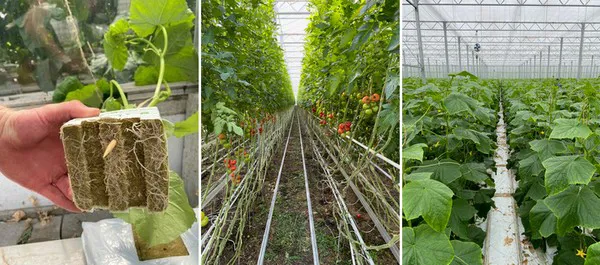
Field tests
Field tests have shown that the altered viscosity of water is associated with improved dissolving action while optimising the accuracy of spray distribution and plant uptake when applying crop protection products. The tests showed that the application rate can be reduced compared to using untreated water, with the same effect.
The improved properties of the water also make it easier for the plants to absorb the active ingredients used. The same applies to the use of liquid plant nutrition fertilisers - regardless of whether they are applied through the leaves or the soil. The transport properties of water are optimised - no matter where they are needed.

On the left basil cultivation without SKW-System, on the right with
More cucumbers
As of 1 December 2022, founder Jürgen sold the company. Thomas Arndt, Hanno-David Alberts and Stephan Strack are the new owners. SKW's oldest system has been operating for 37 years. Among others, cucumber growers in the northern German-Dutch border region already use the technology.
"I know one grower there who says that by using our system he has cucumbers one day earlier," says Pieter. "For growers, this is interesting, for example early in the season when prices are good." In the greenhouse, deployment of the SKW technology also helps prevent the clogging of drippers. "Also, the system ensures better water distribution, a more compact, faster root build-up and therefore more production."
Thick water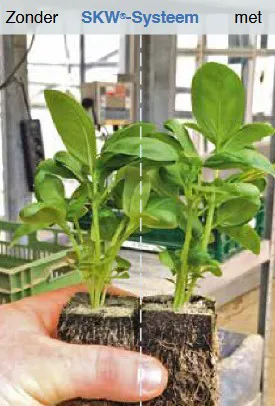 Pieter himself is well acquainted with the figures from the broiler industry. In his experience, entrepreneurs want to know the payback period of techniques. This is often short, Pieter points out with an example from the broiler industry. "That's because here savings are made on feed. Feed is expensive. Feed is better absorbed in water. That means more feed in the animal, and less in excretion. As a result, less is lost."
Pieter himself is well acquainted with the figures from the broiler industry. In his experience, entrepreneurs want to know the payback period of techniques. This is often short, Pieter points out with an example from the broiler industry. "That's because here savings are made on feed. Feed is expensive. Feed is better absorbed in water. That means more feed in the animal, and less in excretion. As a result, less is lost."
In the same way, it also benefits growers, but for fertilisers. Also, thanks to better breeding, water allows itself to be pumped with less energy. "For this reason, our systems are also used in desalination plants in desert areas. The more minerals there are in water, the thicker the water is and the more difference we can make. We put minerals dissolved into water in order."
Installation
The largest single SKW system is capable of processing 110 tonnes of water per hour. With the SKW system, the complete water supply of an agricultural or horticultural farm can be achieved, as well as individual crop protection plants. "This makes it possible to treat the required water independently of a fixed pipeline network," Pieter explains. "Rainwater, well water and/or surface water can also be used."
In Germany, Pieter knows that growers are investing in the system, helped in part by a European subsidy for producer organisations that allows a grower to get 50% of the investment costs back. All kinds of crops are involved, especially outside the greenhouse. He regularly updates on Twitter.
For more information:
Pieter van Noord 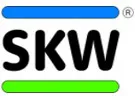
SKW-System
noord@skw-system.de
www.skw-system.de
